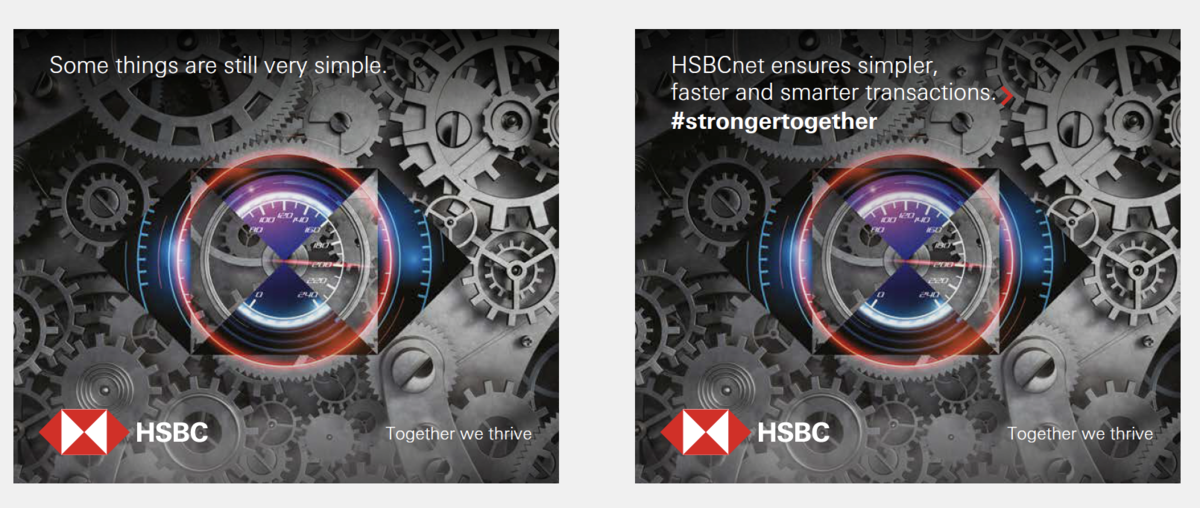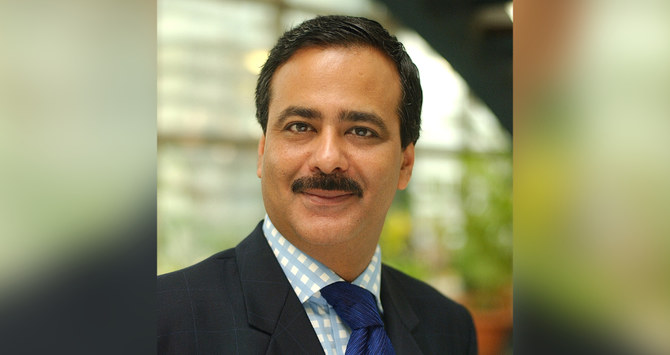DUBAI: Grey veteran Nirvik Singh took the reins of the advertising group in September 2019 when he was appointed as its global chief operating officer – just three months before the first COVID-19 cases were announced.
Prior to that, he served as chairman and CEO of Grey Group Asia Pacific, Middle East, and Africa since 2016, a role he continues to fulfill.
Arab News caught up with Singh to discuss how the advertising business has been impacted this year and what the future holds for advertisers and marketers.
How has COVID-19 affected the advertising business?
COVID-19 has forced a rethink across all industries, and marketing and advertising is no exception.
Consumer behavior and purchasing patterns have changed considerably and some of them, probably permanently.
As lockdown measures were placed across the globe, most media channels, except digital, shrank almost instantly. The postponement of big sporting events, such as the Olympics, also had a significant effect.
Being agile has never been as important; brands have had to adapt quickly by following the consumer, which has meant prioritizing digital communications.
The online environment – including retail, entertainment, and gaming – has seen massive growth in consumption, and shoppable posts are becoming the dominant means of sales conversions for 2020 and beyond.
Brands will rely more on the concept of ‘walled gardens’ i.e. the digital platforms that combine paid advertising with e-commerce to drive sales.

With the need for people to stay home and stay safe, Panadol launched a CSR campaign to fight COVID-19 by asking people to embrace the new normal
What has the impact been on clients?
Industry sectors have been affected differently; marketing activity has held up relatively well in the fast-moving consumer goods (FMCG), tech and healthcare sectors, and it is within those sectors that the most significant changes in communication have taken place.
As people rely on the online world more than ever, marketers have leant heavily on digital solutions, accelerating the shift toward social media and online services.
E-commerce is booming, content creation that is more interactive and conducive to the customer experience is flourishing, gaming has reached previously unimaginable levels of consumer engagement, and the remote working ecosystem has gone from strength to strength.
Such rapid changes in consumer behavior and advertising spend throws up innumerable challenges, but also opportunities. It is how agencies respond to these challenges, and how well they adapt and embrace the opportunities, that will define their success for the future.
What are the clients’ top challenges at the moment?
Staying afloat and remaining relevant. Both are intrinsically connected. How does a brand remain an integral part of consumers’ lives in these unreal times? All clients will have to answer this question decisively. I would say it lies in brand purpose.
This is not just hearsay; it is backed by industry research. Harvard Business Review and Ernst and Young, for example, found that brands that operated with a clear sense of purpose outperformed the S&P 500 by a factor of 10 between 1996 and 2011.
Accenture Strategy’s recent global survey of nearly 30,000 consumers in 35 countries also found that 62 percent of respondents wanted companies to take a stand on issues such as sustainability, transparency, and fair employment practices. This is truer now than it has ever been as companies prioritize employee wellbeing and turn their attention toward the realization of a fairer, kinder, more sustainable world in the light of COVID-19.
During this time, how do you create ads that truly resonate with consumers and don’t come across as tone-deaf or pandering?
By showing awareness and empathy and, above all, being sincere.
Winning people over in today’s age of ‘woke’ advertising means you have to bring more than a great product or service to the table. Brands now need to have authentic stories with a social impact to make a connection and enjoy loyalty from their customers.
COVID-19 has only accelerated a trend that was already forming. Before the pandemic, environmental issues were at the forefront and climate activism was the movement that finally started to gain momentum, brands that are associated with a higher purpose, such as sustainability goals, are the ones that millennials have been gravitating toward.
Consumers want to know their brands of choice are there for them in difficult times and that they share similar values. Trust and authenticity are the keywords.
It is also possible to argue that it is our duty as marketers to provide both reassurance and solutions. That means brands being useful to the communities they serve and offering solutions that are supported by a real desire to help, and not just by looking after one’s bottom line.
Brands need to engage with their consumers in a relevant and purposeful manner such as when a car or house appliances manufacturer pivots its plant to make respirators, or a fashion house produces thousands of gallons of hand sanitizer. This shows their sincerity, where they talk the talk and walk the walk, supporting what they say not just with words but with actions that resonate with their customers. And we have seen brands step up.

As the world goes through a challenging phase, HSBC ensures its banking services are always within the consumer’s reach through its ‘Stronger Together’ campaign.
What initiatives have you taken to help employees and clients during this pandemic?
Our first priority was to secure the health and wellbeing of our staff – not just physical health but mental health too. It takes an adjustment to work from home and we needed to be cognizant of that.
We also had a duty to care for our clients by providing as much assistance and support as possible. That meant sharing knowledge and expertise via remote consultancy workshops, producing intelligence reports to keep them up to date with current insights, social media campaigns to raise awareness of the importance of play hygiene for young kids, and helping our clients produce work such as digital illustrations for social media to show appreciation of frontline workers or shooting a video for a client’s COVID-19-related campaign.
One of our employees also began making face shields for frontline workers and soon had the whole office involved. It is initiatives like this that remind us that an idea can come from anywhere, not just from creative departments and the importance of everyone pitching in to do what they can.
What tools did you launch during this time?
At Grey, we were already working toward collaborating remotely, irrespective of where our people were located.
A few weeks before COVID-19 hit, we launched a unique internal platform called go.grey. It has changed the way we communicate, share, collaborate, and work with each other.
Now, across our network, we have access to every person, deck, campaign, intellectual property, and published work from around the globe at our fingertips. It has made us agile and efficient and helped us to adapt to working in a borderless way. It is now very much a part of our culture and has proved to be a useful platform during these challenging times of working remotely.
We also spearheaded two projects which were developed and made accessible to everyone. The first is an interactive game that encourages young children to follow a hygiene routine and stay safe as they return to public places. Developed by the Grey Amea team and called “Keep Off,” it injected fun into what was an urgent conversation for parents and yet a tedious task for children.
The second was a real-time COVID-19 tracker developed by our digital and social arm, Autumn Grey. Providing data coverage across India, the tracker is available in all the local languages and dialects and provides updates and advice from government bodies, the World Health Organization, and medical experts. Engaging and innovative, both projects gave back to the community and allowed us to stay true to our “Famously Effective” banner.
What are some of the client efforts related to the pandemic that you have worked on?
There have been plenty, as you would imagine, during an unprecedented time of global upheaval, but I’ll focus on just a few.
Grey produced a campaign for HSBC called “Stronger Together,” which reassured customers that its banking services were always within reach, services especially needed in these challenging times.
In Saudi Arabia, Grey created a campaign for Panadol Cold and Flu to remind people that caring for one another does not change, no matter what the circumstances. We also crafted a campaign for Panadol Extra in Saudi Arabia and the UAE to put out the message to stay home and stay safe.
Lastly, the agency created a campaign for P&G’s Venus called “Self-Care Starts at Home,” which promotes the idea that one can look after oneself without always having to rely on others.

Grey MENA and Beirut’s campaign for P&G’s Venus shows how women can practice self-care at home as salons are shut during the lockdown
What are your plans for the agency and to support clients now that the lockdown has been lifted in certain parts of the Middle East?
Most of our clients are already in a recovery mindset. The importance of rebound strategies and implementing marketing solutions to bring consumers closer to the
brand can help with a faster recovery. If there is anything we have learnt, it’s that authentic ‘brand purpose’, and effective ‘story-telling’ are both going to play a central role. This, supported with data analytics, intelligence reports, customer experience, e-commerce pivots, social and digital -will all be beneficial for our clients in determining the new patterns of demand and consumption and how best for them to bounce back in this new environment.
Finally, let’s also not forget the power of the big creative idea remains as potent as ever. We will continue to produce work that is ‘famously effective’ and sets us apart.
How do you foresee the rest of the year and 2021 for the advertising andmarketing industry?
I’m cautiously optimistic about the rebound. Governments across the region are relaxing lockdowns, businesses are re-opening, and stimulus packages are boosting confidence as much as possible -while still considering safety. There is also a belief that recovery will happen at a faster pace than was first predicted. All brands now more than ever, will need to find shared values with consumers to gain their loyalty for the long term, and this is something we will see as an intrinsic part of the comeback plan for 2020-21 and beyond.
From an agency work perspective, there has been on-going activity, and things did not come to a complete halt. In fact, throughout this period, we have been pitching, interacting virtually with old clients, winning new clients, and have created campaigns that resonated well with the public. We were fortunate as our people adapted surprisingly well and quickly to remote working in these challenging times – kudos to them all. No doubt there has been a slowdown and consumers are still quite cautious with spending. However, as lockdown eases, I think there will be a continuous and measured increase in demand, and consumption will start increasing as the population starts to gain more confidence and sees signs of economic stability.
I think this difficult time has given everyone pause to think of what matters and what is important, for people and the planet, and I am hopeful a better and kinder society will emerge from this crisis.


























